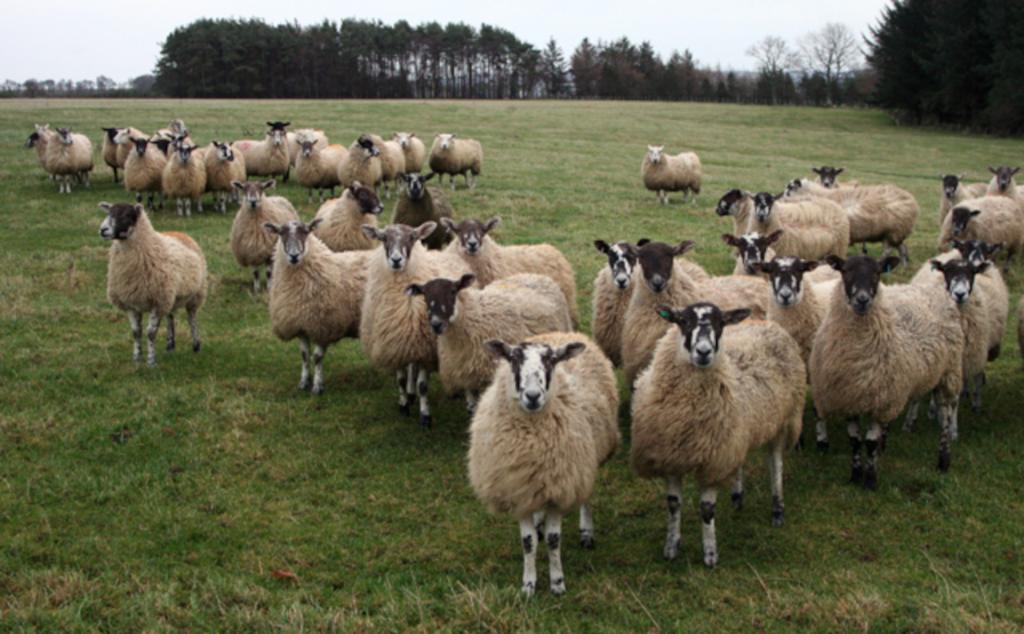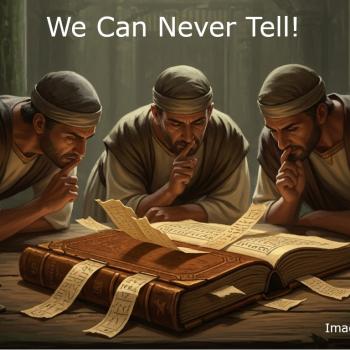What does this mean to me?
In marketing and sales you learn that people don’t buy features. They buy benefits. The gadget can have all kinds of bells and whistles for features, but if they don’t benefit from those bells and whistles in any meaningful way, only people attracted to glitz and glamour buy.
We don’t sell Christianity. But we do help people see the benefits through love.
Relevant questions from new generations – what’s the benefit?
What does eternal life offer me? Probably nothing I won’t get anyway.
What does a church offer me? Probably nothing I can’t get somewhere else.
What is moral training? I’m good to other people. My conscience doesn’t bother me.
You can say Jesus died for me. But people do that in war. So what?
Do I have to believe all the crap the church teaches? I’m not interested.
Do I have to be around people who can’t see me and don’t like me? Not going!
Why should I “worship” a god I can’t see? I see pain all around me. What has this God done for us?
In other words, what does it mean to me?
Well, what does it mean?
The key might be in this articles’ reference verse.
Hey! Course freebie ahead. Read on.

Reference Verse:
“When they had finished breakfast, Jesus said to Simon Peter, “Simon son of John, do you love (agapo) me more than these?” He said to him, “Yes, Lord; you know that I love (phileo) you.” Jesus said to him, “Feed my lambs.” A second time he said to him, “Simon son of John, do you love (agapo) me?” He said to him, “Yes, Lord; you know that I love (phileo) you.” Jesus said to him, “Tend my sheep.” He said to him the third time, “Simon son of John, do you love (phileo) me?” Peter felt hurt because he said to him the third time, “Do you love me?” And he said to him, “Lord, you know everything; you know that I love (phileo) you.” Jesus said to him, “Feed my sheep.” – John 21:15–17
After this passage, Jesus then told him of the sacrifice he would have to make for him. He would die at the hands of others.
Being raised on a farm, I appreciate this mandate of Jesus to his Apostle Peter. Animals get hangry (hunger driven anger) if they aren’t fed. Their behavior becomes bizarre and ill-tempered. Farmers have to feed their sheep or deal with the consequences.
Animals also founder if you let them eat too much, and die. Some will never stop eating. For sheep, high energy food can change their metabolism and interrupt blood flow. They can become lame.
Jesus wasn’t talking to Peter about physical food, but spiritual food. The same principles apply. Consuming too little or too much can lead to catastrophic results.
I don’t eat religion for breakfast, lunch, dinner, and evening snack. I try to live what Jesus taught. Living love is a challenge for me. I try to be good, but it’s so hard.
Please subscribe to my Patheos Newsletter.
Setting the scene for Jesus’ question to Peter about love
This scene occurs after Peter had denied Jesus three times to avoid being associated with him because Jesus was being tried and the punishment was death. Peter had earlier said that he would never deny Jesus. Oops.
Jesus asks twice if Peter loves him in a divine love way (agapo), which is not about affection but about being there for others. This can mean mercy, kindness, personal sacrifice, etc. This must have stung Peter because ultimate personal sacrifice, like Jesus made, wasn’t in his nature at that moment.
Peter replied both times, yes, I love you like a brother (phileo). Peter was probably trying to change an uncomfortable conversation to something more palatable.
Jesus replied to the first response from Peter, feed my lambs. To the second he replied, feed my sheep.
Probably understanding Peter’s pain, Jesus maybe let him dodge the bullet. He said, simply repeating Peter’s sentiment, do you love me like a brother (philia)? This probably sounded like, “really?” This might have caused Peter to think about what brotherly love means. It isn’t just affection, it’s much deeper and causes people to do much more for others. The attempted dodge became a hammer. And Peter felt hurt.
Jesus replied to his affirmative response once more, saying “feed my sheep.”
Apostles’ mission
In contrast to this charge to Peter, is the Great Commission. In the Great Commission, which is also in the Book of John, the apostles are sent into all the world. They are told to make disciples of Jesus of all people.
We have to ask ourselves what that means. Jesus was a uniter of goodwill, a peacemaker, who stripped away the false façade of Judaism as a system of rules of a God who was no longer speaking. God was not lying in the dust of the kingdom of ancient Israel that was no longer a strong power after invasions by several countries and empires.
God didn’t live in a reconstructed Temple where only certain authorized people could communicate. Everyone could pray directly to God.
God didn’t live in a bunch of old laws, rules, and traditions signifying the way to live and worship that would forever remain a way of life. Love was the new standard.
Jesus brought a different kind of kingdom, a spiritual kingdom in which all could participate. It is here now, and eternal. Following “The Way” was the path of love. Love is the way to live. Love reconciles people with God, and with family, friends, and even enemies. It teaches us to help others even if it means some sacrifice on our part.
The law is conforming. Love is transforming.
The role of the church
The overriding question for all who follow God is to understand love. Jesus demonstrated for us what it means to love others. It’s acceptance of all, including the poor, abused, tax collectors, widow and orphan, sick, infirm, and the outsider (Roman soldiers and non-Jews).
Like the ancient synagogue (community building and assembly place), Jesus’ assembly can serve many roles to support community needs. Doing so shows love. Doing so tends the flock and feeds the sheep.
Synagogues in Jesus’ day were places for many community functions. There was only one religion, Judaism, and it was also the government, as much as religion could be a government under Roman rule.
Synagogues were places of prayer and religious services, where Jews attended weddings, bar and bat mitzvahs (gender related), and other ceremonies. They were schools where small groups of students would read scripture and discuss the Torah and oral tradition. They were community centers where people would gather to discuss and debate ideas. Like town halls, they served as political institutions. They could serve as places of healing and other memorable events.
Each individual in the church represents Jesus and is his body on earth (Romans 12:4–5, 1 Corinthians 12:12–27). Each demonstration of love shows Jesus to others (Matthew 25:37-40).
What spiritual food does our community need?
How do we learn to live together in love?
- Invite others into our community. (Disciples)
- Show others that the way of love is best (transformational experience).
- Be a help when it’s needed.
- Do people know how to resolve conflict? It’s one thing to talk about loving others. How do you do this when animosity gets in the way?
- Counseling: Marriage and children go through very rocky times.
- Economic education: Many people have difficulty balancing a budget, let alone understanding macroeconomics. In our ignorance we are subject to fear mongering and misinformation that lead us down the wrong path. The ancient Jews had strict laws about fair trade. Taking unfair advantage of people through scales that weighed incorrectly was not allowed.
- Child care: Young families are desperate for child care so they can just take a breath without someone clinging to their leg. So they can go to the store, go to a religious service, take a class, go to an appointment, or go out for the evening.
The sheep are hungry.
See the additional material on language after the Conclusion and brief ad.
Conclusion
What does the church have to offer new generations that they can’t get elsewhere? Not much if we don’t offer it. A lot if we look for their needs and address them, showing our love for them.
Jesus asked Peter to be the shepherd to those who follow Jesus. Feed the little lambs (new believers) their appropriate food. Feed the mature believers their appropriate food. Peter wasn’t asked to make disciples but to feed those who already are.
I took the Great Commission seriously as an evangelical pastor. But it always seemed my focus was in the wrong place. But after years working with the church I realized how deep the need is. It’s like bringing the starving to the church then abandoning their need for food. The church is a place of transformation, and that takes a spiritual and teaching focus.
The law is conforming. Love is transforming.
More after this important message. Okay, I think it’s important.
Hey! How can churches minister to new generations if they won’t come to church?
Our bucket has had a hole in it since 1925. We can’t find a plug that stops the leak!
Church attendance decline from 1925 to present as a percentage of the population
I developed and presented a course on understanding and working with new generations. I would like to say I had rave reviews, but on a scale of 1 to 5 it averaged 4.5. Well, some of the people were raving.
The course helps people understand new generations, their values, and their differences. It helps people understand how to build a bridge to them and minister to them. The old worn-out things we used to do don’t work, and for good reason. This solutions focused course enables people to find new ways, appropriate ways, to minister to these generations in their local circumstances. It’s for church groups and generates deep discussion.
Course freebie: To sign up for a free course, go to https://connexions.life/etc/course_form.htm
Free video preview of the course:
Course freebie: To sign up for a free course, go to https://connexions.life/etc/course_form.htm
Probability Space
What probability spaces can we open in our minds to consider what else the church can do and teach?
Potential Space
If you think creatively and allow your mind to wander and explore, what else can the church teach and do to represent God’s love for all?
Would love to hear your thoughts in the comments below. This helps me improve my work.
Please subscribe to my Patheos Newsletter.
If you made it this far, you’re a reader! Image two lawyers asking restaurant patrons for help writing their suicide notes, in this comedy. Intrigued? Please consider my novel, Death for Christmas: Be kind or it may kill you, on Amazon and Draft2Digital.
Additional Material: Do you love me? Problems with language
This passage is recorded in Greek, then translated into other languages. Did Jesus speak Greek?
Some say Jesus and his apostles couldn’t have spoken Greek. This is nonsense. Alexander the Great, in an effort to force Greek language and culture on all conquered people, forced the Greek language on the people of Israel three hundred years earlier. Much of Jewish Literature was written in Greek or translated into Greek.
Nazareth, where Jesus was born, and near where the apostles were recruited, was near a major trading route and hub in which Greek and other languages were spoken.
If you fished or created goods with carpentry, and sold your wares, or purchased from traveling merchants, you likely spoke some Greek as well as Aramaic.
If you attended the synagogue, you heard the Torah in Hebrew. Hebrew and Aramaic are both derivatives of the Semitic language of the larger area.
This reference passage about Peter and love reads differently in the ancient languages of Greek, Aramaic, and today’s English. Aramaic and English have only one word for love: love. The question could have been phrased in more appropriate phrases to indicate what was being said. It’s not translated well.
– Dorian
Our answer is God. God’s answer is us. Together we make the world better.
Restore and recreate. Take time to celebrate life. Laugh, sing, and dance regularly, even every day. Happy. This is why we dance to celebrate life: Reindeer actually running and dancing.
Civic service opportunities
Do Unto Others Kindness Campaign, and civic engagement.
United Methodist Church Volunteer Opportunities.
Join or support Zero Hour and amplify the voices of youth organizing for climate action.
Peoples Hub. Resistance, Resilience, Restoration, Re-imagination. Online Popular Education. For movement workers to learn, connect, collaborate, and strategize – in and across the disability justice and solidarity economy movements.
Stakeholder Capitalism – a video podcast series from the World Economic Forum. Can capitalism be made to work for all of us – and to improve rather than destroy the state of the planet?
General service and aid opportunities (on One Spirit Resources Website). To add your service opportunity to the One Spirit Resources list, contact the author (me) through Facebook Messenger. Note that I only friend people I know.
————————————–
Education Opportunities for new generations
Becoming an Entrepreneur – MITx online
Evaluating Social Programs – MITx online
_______________________
Bible scripture verses are New American Standard Version (NASB), unless noted.
_______________________
Author and books
Appease the Volcano: What does God require from people? The voices of the ancients from many religions echo much of the same things: It starts with law, then mercy and forgiveness, then love. Love is a major emphasis in all major religions and replaces law.
The Prophetic Pattern: Ancient and Modern Prophecy: How to distinguish the intent of various types of prophecies and oracles, both ancient and modern.
Preparing For the Future Of Work and Education: Analysis of the kinds of jobs that AI and Robotics will displace, and the educational requirements for them. AI will replace or augment thirty percent of jobs. This is an in-depth analysis citing many authoritative sources.
Author Website: Dorian Scott Cole













